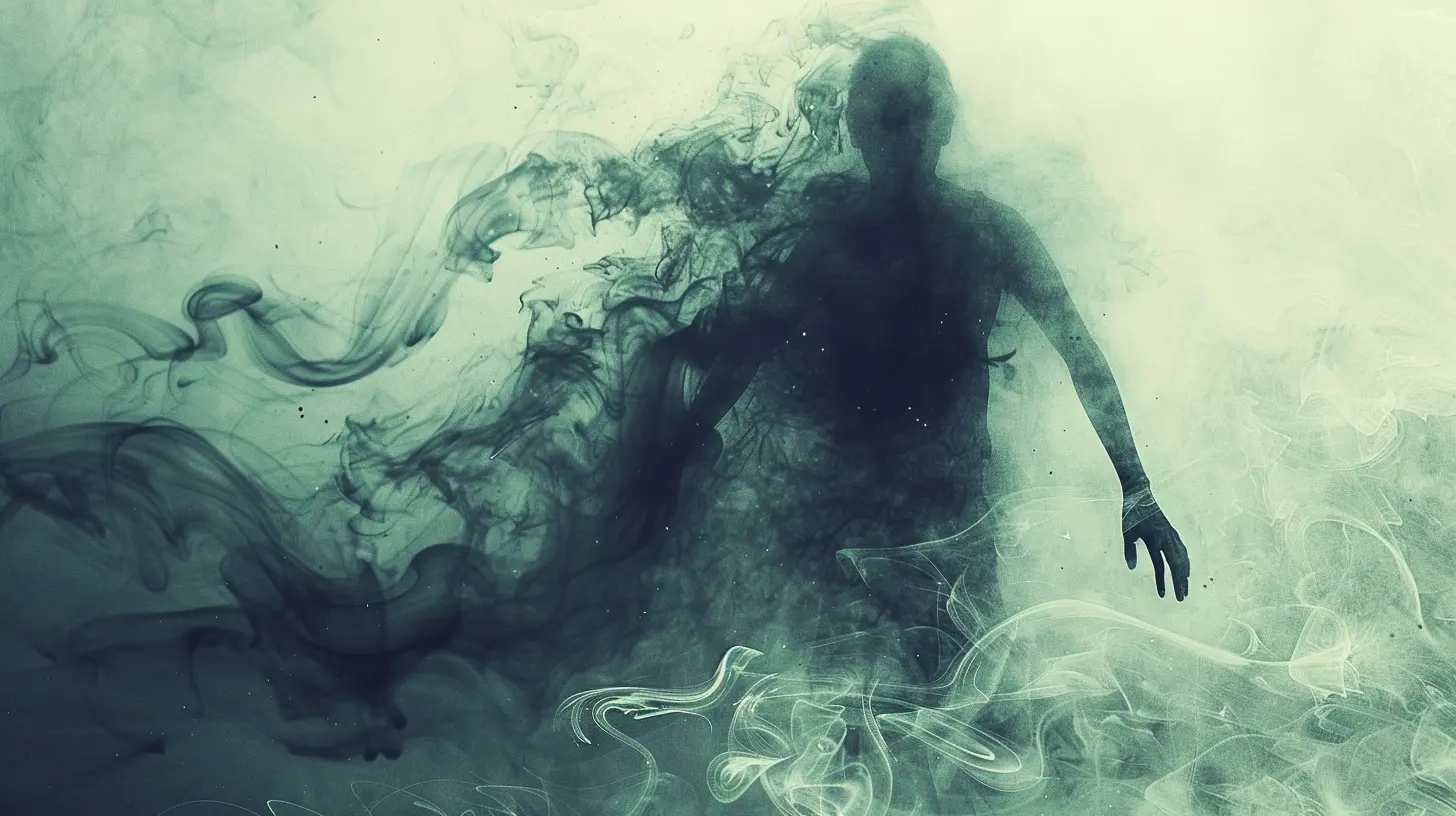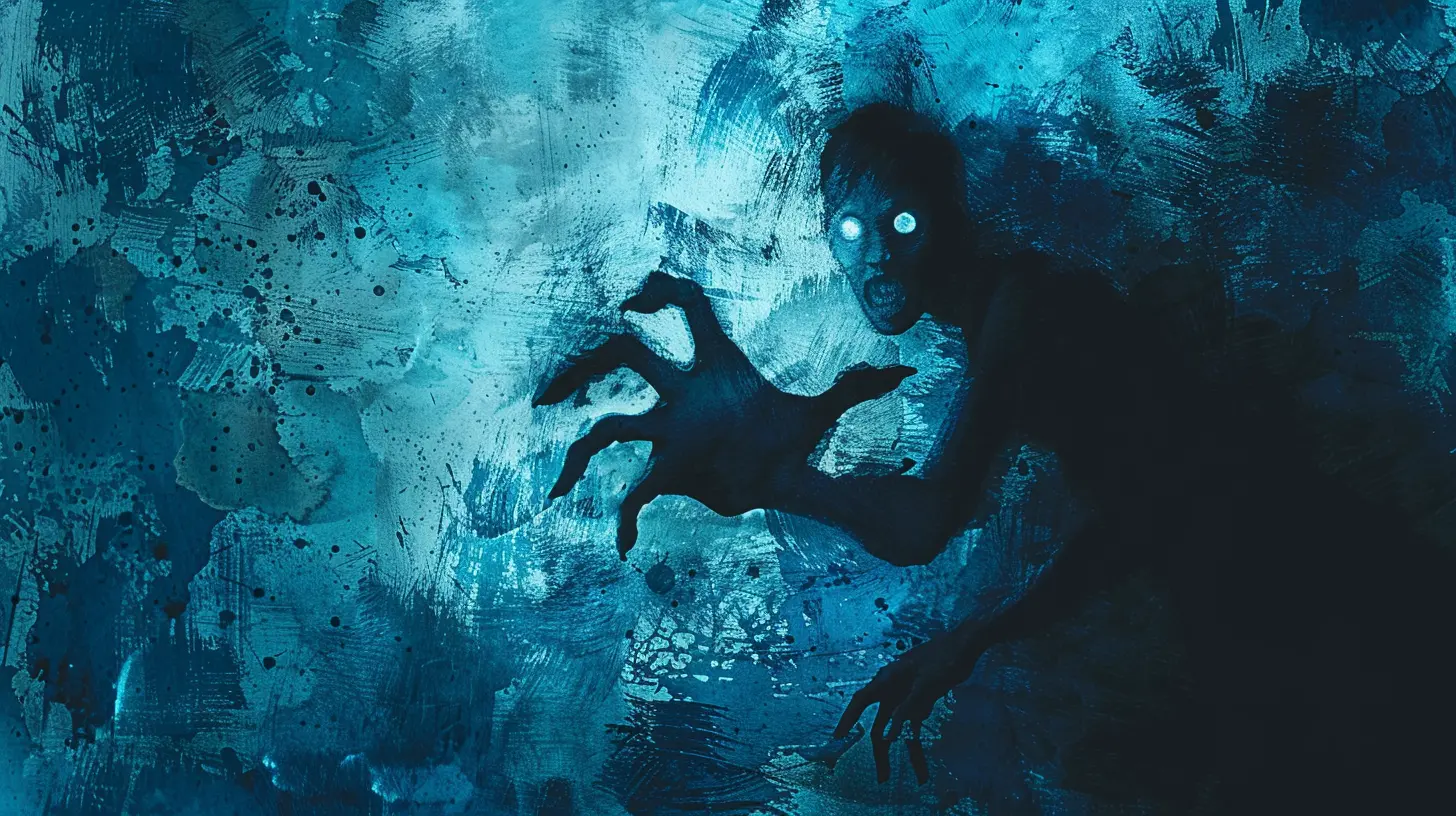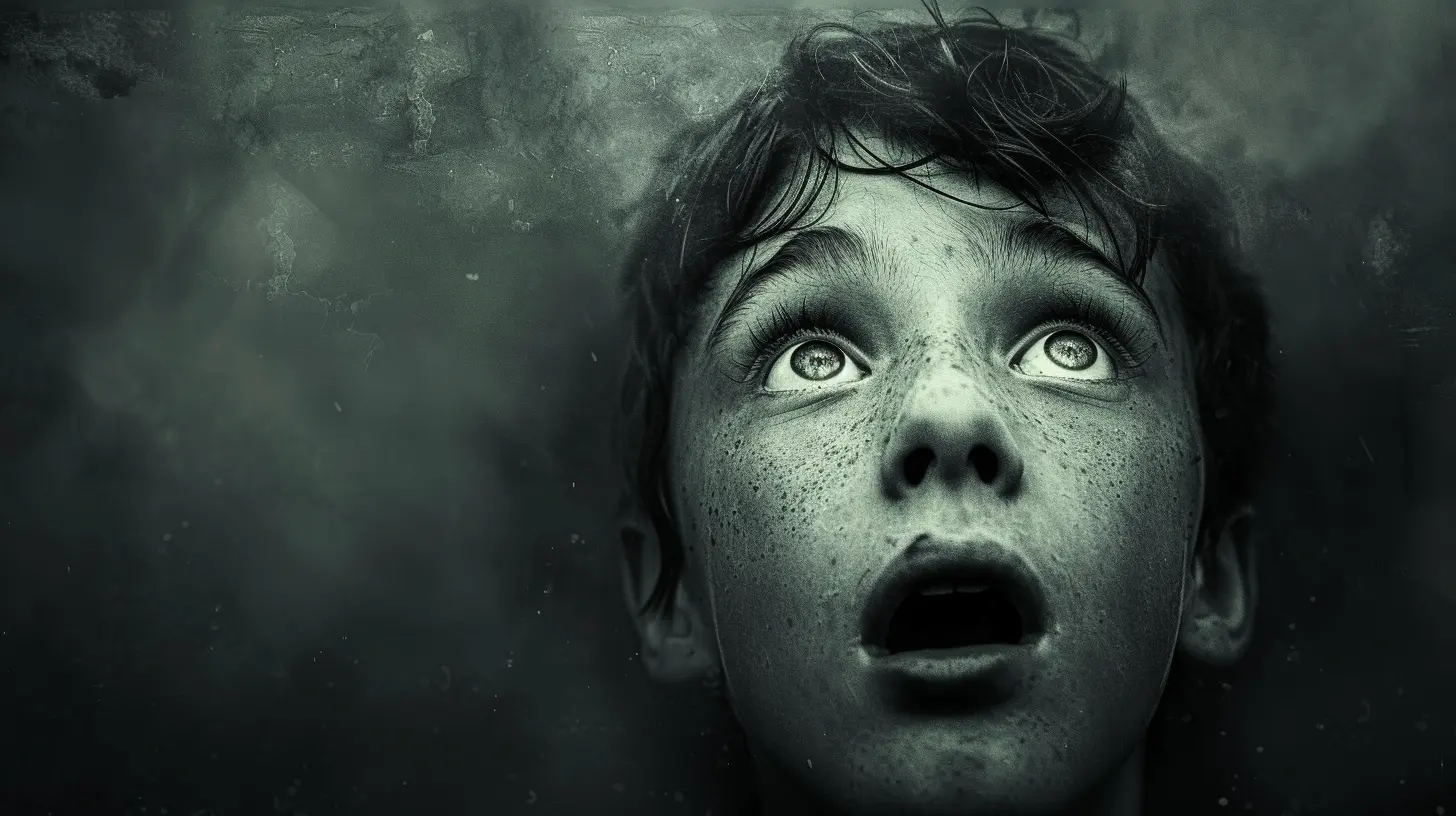How Fear Affects Mental Health in Adolescents
6 November 2025
Ah, adolescence—the magical time of braces, bad haircuts, and trying to figure out if you're cool by pretending you don’t care about being cool. Spoiler alert: you totally care. But let's throw a wild card into the chaos that is the teenage experience. Yep, we’re talking about fear. Not the kind you get from watching horror movies (although, let's be honest, those late-night jumpscares have their role), but the deep-rooted, anxiety-inducing, mind-numbing fear that affects the young and hormone-fueled minds of teenagers.
You might think fear is just one of those annoying emotions that comes and goes, like acne or your weird obsession with that one TikTok trend. But fear? Oh no, it’s got a PhD in messing with your mental health. Especially if you're a teen. So, buckle up, buttercup—we're about to break down how fear messes with adolescent mental health in the most sarcastic, painfully honest, and, yes, totally relatable way possible.
Welcome to the Teen Brain: Now With 100% More Drama
Alright, before we dive into the fear factor, let’s talk about the teenage brain. It’s a wonderland… of confusion, overreactions, and really questionable decision-making. The adolescent brain is still under construction—mainly, the prefrontal cortex, aka the part that says “Hey, maybe don’t jump off the roof into the pool.”Since this area is still growing up (and sometimes calling in sick), emotions take the wheel more often than logic does. So when fear enters the chat, it doesn’t exactly get handled with a calm, rational response. Oh no. It gets the full Hollywood blockbuster treatment—panic, overthinking, spiraling thoughts, and maybe some dramatic music for that touch of flair.
The Different Flavors of Fear: More Than Just "Boo!"
Fear isn’t just about being terrified of the dark or spiders (although, let's face it, spiders are evil little eight-legged demons). In adolescence, fear wears many masks—and none of them are fun.1. Social Fear: The Original Popularity Contest
Ever walk into a room and feel like everyone’s judging you? (Spoiler: they’re not... probably.) That’s social fear. Teens are basically walking, talking balls of insecurity trying to survive in the gladiator pit we lovingly call high school.Social fear leads to:
- Avoiding parties (unless there’s pizza)
- Not raising your hand even when you totally know the answer
- Overanalyzing every. single. text message.
This type of fear can morph into social anxiety faster than you can say “Did they just unfollow me?”
2. Academic Fear: GPA or DOA
Another fan favorite of fear categories is academic pressure. Because nothing says “mental stability” like stressing over multiple tests, college applications, and that one pop quiz you didn’t see coming.This kind of fear includes:
- Perfectionism burnout
- All-nighters fueled by Red Bull and regret
- That sinking “I’m going to fail my future” vibe
Throw in parental expectations, and voila! You’ve got a recipe for fear-induced anxiety stew.
3. Fear of Failure: A+ for Stress
Teens often see failure as the end-all-be-all. Like if you mess up once, your life is basically over. Fear of failure can lead to procrastination (because avoiding it means you can’t fail, right?), self-sabotage, and an unhealthy fear of, well… trying.
Fear + Hormones = Mental Health Mayhem
Now, let’s get into the juicy part: how EXACTLY fear hijacks adolescent mental health. Brace yourself—it’s not just “they’re moody.” It’s science, baby.Anxiety: The Fear Factory
Fear is anxiety’s favorite BFF. And when teens are constantly afraid—be it of rejection, not fitting in, or that math final—they develop chronic anxiety faster than they can scroll through Instagram.Symptoms include:
- Racing thoughts (that spiral from “I might fail” to “I’ll be homeless by 30”)
- Trouble sleeping (because the brain decides 3 a.m. is prime worry time)
- Physical symptoms like stomachaches, headaches, and that fun heart-racing thing
Depression: When Fear Steals the Joy
If anxiety is the fire, depression is the smoke. Constant fear can wear a teen down until life feels like one giant “meh.” When fear goes unchecked, it can evolve into hopelessness and helplessness—aka the breeding grounds for depression.Think:
- Loss of interest in stuff that used to be fun
- Feeling like they’re not good enough (even though, spoiler alert, they are)
- Increased irritability (cue the existential eye roll)
Avoidance Behavior: If I Don’t Look at It, It’s Not There
Fear trains teens into avoiding the things that trigger it—whether that’s school, people, or speaking up. At first, it feels like a relief ("Yay, I skipped gym class!"), but over time, it snowballs into a fear-avoidance cycle that’s hard to break.And trust me, avoidance isn’t a cute personality trait—it’s a fast track to more anxiety and feeling detached from life.
What Causes All This Teenage Terror Anyway?
Let’s get into the why of it all. Because fear doesn’t just show up like an uninvited party guest—it gets invited by a hot mess of factors.1. School Pressure: Welcome to the Stress Olympics
Between grades, extracurriculars, peer comparison, and the looming threat of "your future is on the line," schools might as well hand out anxiety with the syllabus.2. Social Media: The Highlight Reel of Your Insecurities
Thanks to social media, teens are constantly bombarded with “perfect” images of how others live. You know, those photos where someone’s traveling the world while you’re stuck doing algebra in your pajamas?Comparison culture breeds fear of not being good enough, attractive enough, smart enough… basically, it’s a cocktail of inadequacy served with a side of anxiety.
3. Family Dynamics: It’s Not Always a Full House
Parents mean well (most of the time), but when teens face unrealistic expectations, constant pressure, or lack of emotional support, fear finds a comfy little home in their heads.So, What Can We Do? (Besides Cry Into a Pillow)
Alright, enough doom and gloom. Let’s talk solutions. Because no one wants to live in a constant state of panic just because they have a group project due next week.Promote Emotional Literacy
Sounds fancy, but it’s really just about teaching teens that emotions are normal and not a sign of weakness. Let’s normalize saying things like:- “I feel anxious right now”
- “I’m scared of failing”
- “Can I talk to someone about this?”
Knowing how to name and manage emotions? That's emotional armor for the mind.
Therapy: Not Just for Grown-Ups
Therapy isn’t a punishment for being “broken.” It’s like hiring a personal trainer—but for your brain. Cognitive Behavioral Therapy (CBT) is especially helpful with fear-based patterns. Plus, it gives teens solid tools, not just vague advice like “just relax!”Limit the Doom Scrolling
Yes, I’m looking at you, TikTok rabbit hole. Limiting screen time and curating social media feeds with healthy, positive content can reduce the constant comparison parade. Let’s get real—your life doesn’t have to look like a curated influencer’s feed at 16.Encourage Safe Spaces
Whether that's family, online communities (the wholesome ones), or friends who don’t judge, safe spaces allow teens to vent without fearing they’ll be ridiculed, dismissed, or ghosted.Sleep: The Unsung Hero of Mental Health
Teens need 8-10 hours of sleep (yes, seriously). Fear and anxiety skyrocket when you’re running on fumes. Think of your brain like your phone—it doesn’t run well on 5%.Final Thoughts: Fear Isn’t the Enemy, But It’s Definitely a Frenemy
Let’s be real—fear isn’t going anywhere. It’s part of being human. But when we let it run the show, especially during the already weird and wild ride of adolescence, things can get messy.Fear doesn’t need to dominate the teenage experience. With the right tools, support systems, and a little less societal pressure to be flawless (please and thank you), teens can face their fears without letting them take over their mental health.
So, to all the teens out there: You're not weak for being scared. You're not alone for feeling overwhelmed. And trust me, no one actually has it all together—even if their Instagram says otherwise.
Sometimes, the bravest thing you can do is admit you're afraid… and then show up anyway.
all images in this post were generated using AI tools
Category:
Psychology Of FearAuthor:

Nina Reilly
Discussion
rate this article
1 comments
Hesper Kearns
Thank you for highlighting the crucial link between fear and adolescent mental health. It’s so important to recognize how these feelings shape their experiences. Your insights provide valuable understanding and support for both parents and educators in navigating this challenging time.
November 10, 2025 at 3:34 PM

Nina Reilly
Thank you for your thoughtful comment! I'm glad you found the insights valuable for parents and educators in supporting adolescents.


